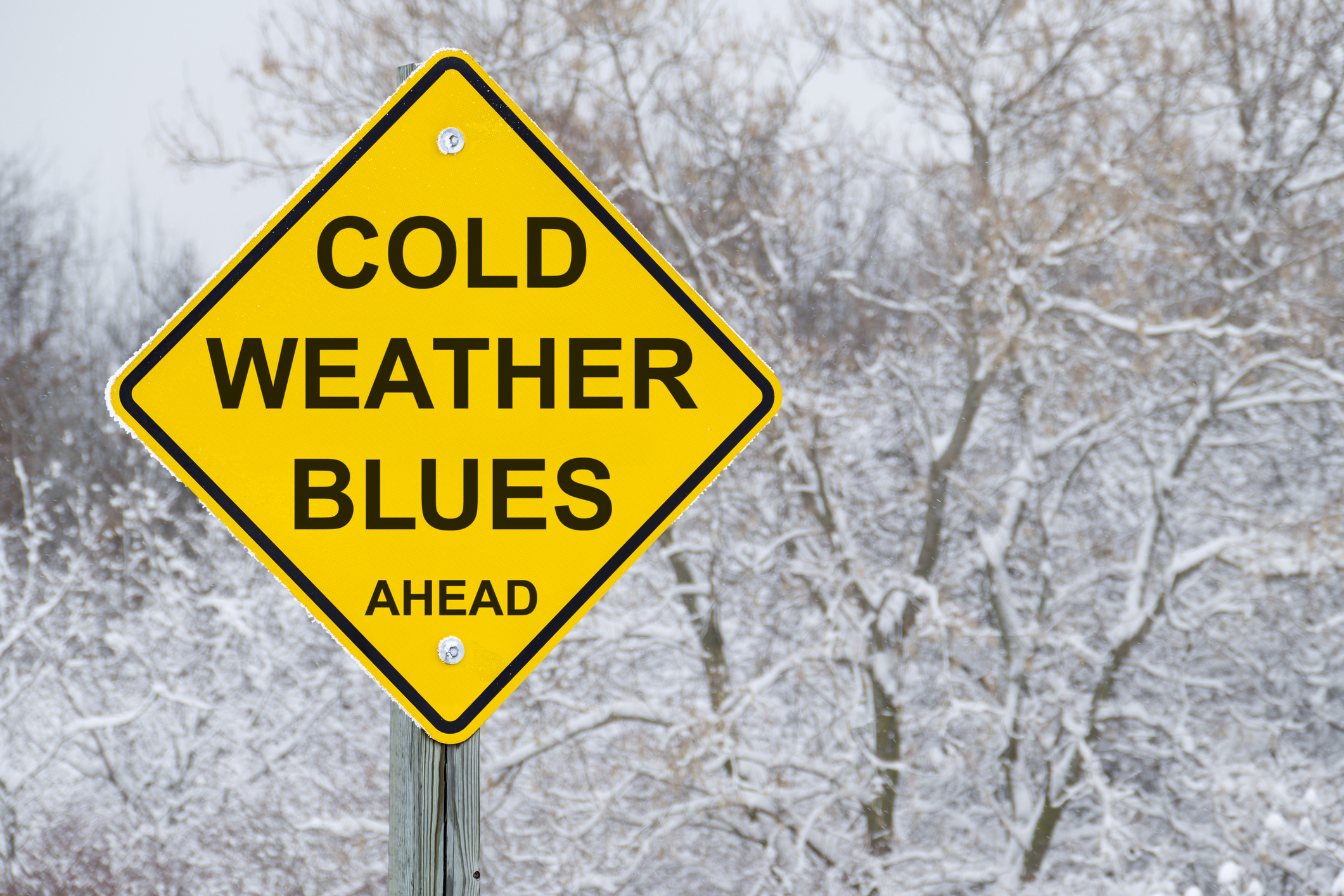While some people look forward to skiing, sledding, ice skating and other fun activities in the winter, other people are struggling with Seasonal Affective Disorder (SAD). SAD is a type of depression triggered by the change from warmer to colder seasons. Some signs of the disorder include:
- Sadness
- Hopelessness
- Lethargy
- Excessive sleep
- Irritability
- Weight gain
- Mood swings
- Fatigue
- Anxiety
- Lack of concentration
According to the Mayo Clinic, the exact cause of SAD is unknown but it is believed to be related to the reduced level of sunlight in the fall and winter and how it affects the body’s levels of serotonin and melatonin and its circadian rhythm.
Less sunlight can cause the levels of serotonin, a chemical in the brain that affects mood, to drop which can trigger depression. The body’s production of melatonin, which helps regulate sleep patterns and mood, can become imbalanced. The circadian rhythm, your body’s biological clock, can also be disrupted by the decrease in sunlight.
Psychology Today reports that SAD affects an estimated 10 million Americans, and that another 10-20% may have mild SAD. Even if someone doesn’t have clinically diagnosed SAD, a person may experience what many is commonly known as the “winter blues.”
Helpful Tips for Beating the Winter
If you have Seasonal Affective Disorder or other types of winter depression, here are some treatment options you may want to consider:
Light up your life – Expose yourself to more sunlight. Take a walk outside or open up the blinds and sit near a window. If you can’t access enough natural sunlight, consider phototherapy, a SAD treatment in which you get exposure to bright light through a special light box. Medical News Today reports that according to the Seasonal Affective Disorder Association (SADA), “bright light therapy has been shown to be effective in up to 85% of diagnosed SAD cases.”
Increase Vitamin D3 – Vitamin D3 has been shown to play a role in mood and in the production of serotonin. It is naturally produced when your skin is exposed to sunlight. Since in the darker months the body receives less sun exposure, some people experience vitamin D deficiency. This deficiency, researchers believe, may contribute to SAD. If you are feeling chronically depressed in the fall and winter, increasing your uptake of vitamin D3 through supplements may help reduce your symptoms by providing you with the recommended daily intake.
Try aromatherapy – Some essential oils have scents that can stimulate the areas of the brain that affect mood. Citrus, lavender, jasmine, and eucalyptus fragrances have been shown to help improve mood and provide some relief for depression, stress and anxiety.
Exercise – Alleviating SAD symptoms is just one more reason to add exercise to your to-do list. Regular exercise gives a boost to your brain’s feel-good chemicals including serotonin. Exercise can also improve your sleep and can help you fight off weight gain.
Eat healthy – People who are depressed often crave and overindulge in high-sugar foods because they provide a fast – albeit unhealthy – energy boost. These foods can cause your blood sugar to raise quickly and then drop, which can exacerbate your depression and lower your energy level. A better choice is to select complex carbohydrates like brown rice, whole grains such as oatmeal, dark leafy greens, and omega-3-rich foods like fish and nuts. These types of foods have been shown to promote increased production of serotonin.
If you have tried to do the above and are still experiencing feelings of depression, speak with your doctor or a mental health professional. They may suggest other types of treatments, including medications that may help manage SAD symptoms and prevent them from coming back.
The information contained on this page is for informational purposes only. Omni Financial does not endorse, recommend or imply affiliation with the referenced companies, events or organizations. The purpose of this blog page is to promote understanding and knowledge of various health topics. It is not intended to be a substitute for professional medical advice, diagnosis or treatment. Always seek the advice of your physician or another qualified healthcare provider with any questions you may have regarding a medical condition or treatment and before undertaking a new health care or fitness regimen, and never disregard professional medical advice or delay in seeking it because of something you have read on this website.

Friendship Rewards Program
Refer a friend and get a $25 Omni Gift Card



